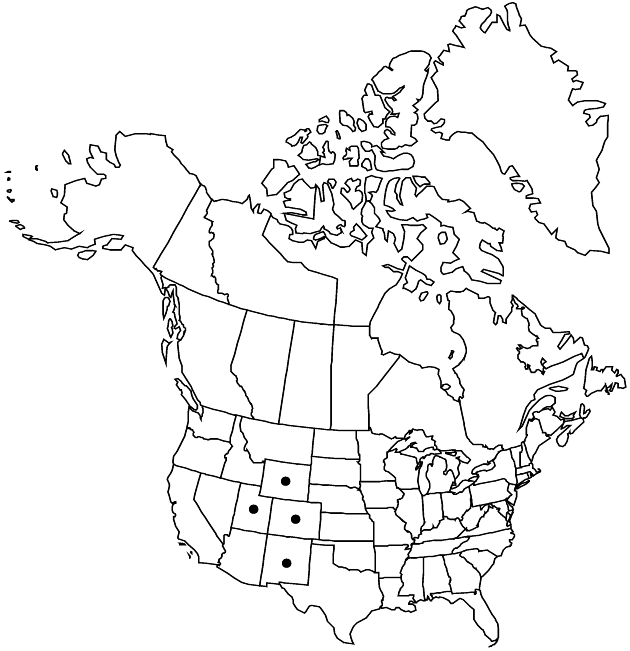Difference between revisions of "Erigeron melanocephalus"
Bull. Torrey Bot. Club 26: 246. 1899.
FNA>Volume Importer |
FNA>Volume Importer |
(No difference)
| |
Revision as of 18:44, 24 September 2019
Perennials, 3–12(–21 at lower elevations) cm; fibrous-rooted, rhizomatous, caudices decumbent, often branched, rhizomelike, sometimes taprootlike. Stems erect, distally villous (hairs with black cross walls), minutely glandular near heads. Leaves mostly basal (persistent), some cauline; blades spatulate to oblanceolate, (10–)20–50(–150) × 4–6(–15) mm, cauline linear, bractlike, margins entire (apices rounded to retuse), faces glabrous or sparsely hirsute, eglandular. Heads 1. Involucres 6–9 × 10–14 mm. Phyllaries in 2(–3) series, sparsely villoso-sericeous (hairs flattened, cross walls black, imparting distinct black color to involucres), glandular. Ray florets 45–74; corollas white to purple, 7–11 mm (mostly 1–2 mm wide), laminae spreading, tardily coiling. Disc corollas 2.4–3.2 mm. Cypselae (oblanceoloid-oblong) 2–2.3 mm, 2-nerved, faces strigoso-hirsute; pappi: outer of setae, inner of 15–30 bristles. 2n = 18.
Phenology: Flowering Jul–Aug.
Habitat: Rocky slopes, talus, alpine and subalpine meadows, subalpine spruce-fir
Elevation: 3100–4000 m
Distribution

Colo., N.Mex., Utah, Wyo.
Discussion
Selected References
None.